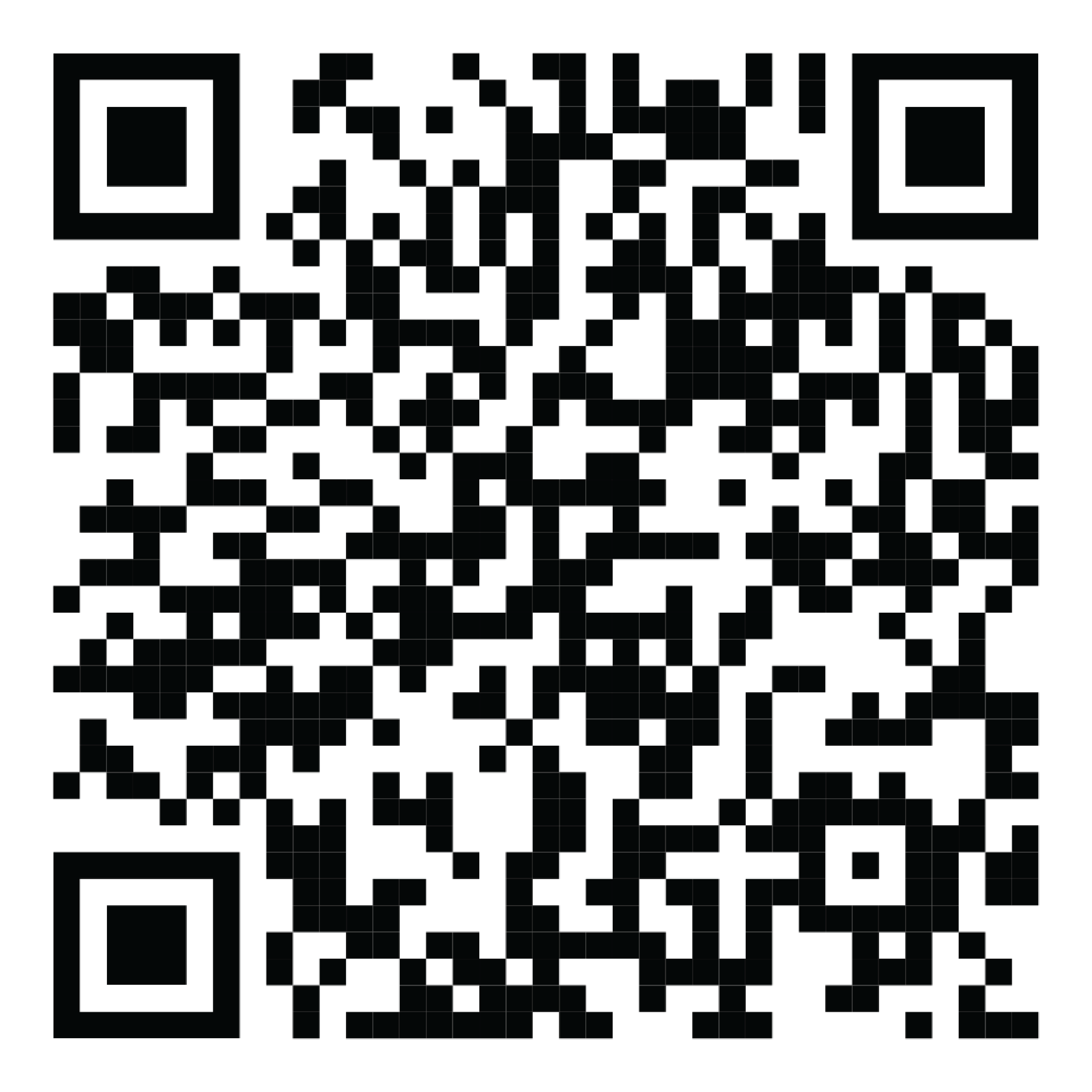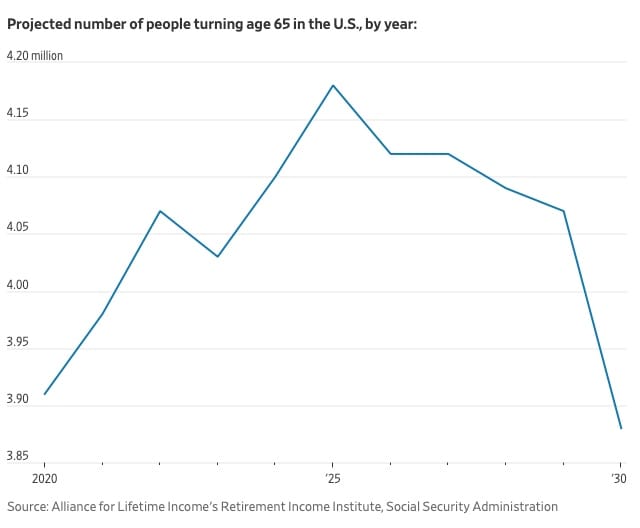December 27 2024
South Korea impeaches president, again; Peak retirement wave hits; AI favors smaller cities; COVID lab leak cover-up?; Trump targets remote workers; Battle for Eurasia Update; Prohibition flashpoint in Wichita, KS

1. Record Wave of Americans Hitting Retirement Age Reshapes Financial Sector
2. Study: AI Boom Could Revive America's Heartland Cities
3. FBI ‘found evidence Covid was lab leak but was not allowed to brief president’
4. Union Contracts Shield Most Federal Workers from Trump's Return-to-Office Threats
5. Battle for Eurasia Update: A. Finland Seizes Russian-Linked Tanker Over Cable Sabotage, B. EU Gas Storage Depleting Rapidly, C. North Korea Expands Arms Supply to Russia
Disabling app notifications
December 27, 1900: Prohibitionist Carry Nation smashes Wichita, KS bar
GET THE APP - FREE!

See the Ad Astra Podcast! Released on Apple and Spotify around 10a CST.
FLASH South Korea’s legislature voted to impeach acting President on Friday after he declined to make judicial appointments needed to advance the impeachment of his predecessor
1. Record Wave of Americans Hitting Retirement Age Reshapes Financial Sector
More Americans than ever will turn 65 in 2025. That will be a dominant theme for financial stocks in the years ahead. About 4.2 million people in the U.S. are forecast to cross that age threshold next year, according to a report by the Alliance for Lifetime Income’s Retirement Income Institute, citing Social Security Administration figures. This could represent the height of what is termed the “peak 65” zone, a period of years from 2024 to 2027 in which more than 4.1 million will hit that age level each year. For financial-services firms, that likely means more demand for investments that can help people close the income gap they expect from not working. That can be as simple as putting their cash into higher-yielding vehicles, such as money-market funds. Already, investors’ close attention to cash yields is a challenge for banks and brokers accustomed to supercheap deposits.

Article Source: WSJ
2. Study: AI Boom Could Revive America's Heartland Cities
Chattanooga, Tenn., a midsize Southern city, is on no one’s list of artificial intelligence hot spots. But as the technology’s use moves beyond a few big city hubs and is more widely adopted across the economy, Chattanooga and other once-struggling cities in the Midwest, Mid-Atlantic and South are poised to be among the unlikely winners, a recent study found. The shared attributes of these metropolitan areas include an educated work force, affordable housing and workers who are mostly in occupations and industries less likely to be replaced or disrupted by A.I., according to the study by two labor economists, Scott Abrahams, an assistant professor at Louisiana State University, and Frank Levy, a professor emeritus at the Massachusetts Institute of Technology. These cities are well positioned to use A.I. to become more productive, helping to draw more people to those areas. The study is part of a growing body of research pointing to the potential for chatbot-style artificial intelligence to fuel a reshaping of the population and labor market map of America. A.I.’s transformative force could change the nation’s economy and politics, much like other technological revolutions.
Article Source: NYT
3. FBI ‘found evidence Covid was lab leak but was not allowed to brief president’
The FBI found evidence suggesting that Covid-19 was caused by a lab leak but were not allowed to brief the president, it has been claimed. Jason Bannan, a doctor of microbiology and former senior scientist at the FBI, has dedicated more than a year of his life to discovering the origins of Covid. But despite being the only US national intelligence agency to conclude that a lab leak was likely, the FBI and Mr Bannan were snubbed from a National Intelligence Council briefing with Joe Biden, it has been claimed. Mr Biden had ordered an urgent investigation in May 2021 by US intelligence agencies and national laboratories to identify whether the virus had been transferred from an animal to a human or had escaped from a Chinese laboratory. The FBI had not only concluded a lab leak was likely but that it had “moderate confidence” in its assessment – more than any other agency – and had expected to make this case to the White House but no officials from the agency were invited to do so. In his first interview, Mr Bannan told the Wall Street Journal: “Being the only agency that assessed that a laboratory origin was more likely, and the agency that expressed the highest level of confidence in its analysis of the source of the pandemic, we anticipated the FBI would be asked to attend the briefing. “I find it surprising that the White House didn’t ask.” A spokeswoman for the DNI’s office told the newspaper that the differing views among the intelligence community had been fairly represented and it wasn’t standard practice to invite representatives from individual agencies to briefings for the president. The office of the DNI and the NIC’s work on Covid-19 origins “complied with all of the intelligence community’s analytic standards, including objectivity,” the spokeswoman said.
Article Source: The Telegraph
4. Union Contracts Shield Most Federal Workers from Trump's Return-to-Office Threats
President-elect Donald Trump warned federal employees last week that they must return to the office — or else “they’re going to be dismissed.” The threat was the latest and loudest signal yet that Trump, his allies and Republicans in Congress are committed to ending a remote-work culture that became widespread for the civil service of 2.3 million during the coronavirus pandemic but that many conservatives now decry as an outdated taxpayer-funded perk that has hurt performance across the government. A quick return to pre-pandemic — or even stricter — federal office policies is not likely to happen with the stroke of a presidential pen. Trump’s expected return-to-office mandate faces furious resistance from federal employees, many of whom are covered by union agreements that guarantee work-from-home policies — including some contracts extended in recent weeks by outgoing Biden officials eager to blunt Trump’s impact on the workforce. About 56 percent of the civil service is covered by collective bargaining contracts, many of which include provisions for telework, according to federal data and union officials. A record 10 percent of federal jobs now are designated as fully “remote,” with the official workplace an employee’s home or rented space far from an agency headquarters or regional office. The General Services Administration, which manages federal buildings, has also moved aggressively in recent years to shed costly excess office space as Biden officials kept pandemic policies in place.
Article Source: WaPo
5. Battle for Eurasia Update: A. Finland Seizes Russian-Linked Tanker Over Cable Sabotage, B. EU Gas Storage Depleting Rapidly, C. North Korea Expands Arms Supply to Russia
Editors note: This ongoing conflict pits the West, led by the United States, against an axis of adversaries, including China, Russia, Iran, and North Korea. At stake is dominance over the vast and strategically critical landmass of Eurasia. The conflicts in Ukraine, the Middle East, and rising tensions with China in East Asia are all interconnected, forming part of a larger struggle: the Battle for Eurasia. To dive deeper into my framework for understanding the Battle for Eurasia, see my article.
A. The Finnish authorities seized an oil tanker on Thursday on the suspicion that it was involved in cutting vital undersea cables and said the ship might have been part of Russia’s “shadow fleet,” aimed at evading Western sanctions. In a statement, the police in Finland said the authorities had boarded the Eagle S tanker in Finnish waters. The ship, which is registered in the Cook Islands in the South Pacific, had been sailing from St. Petersburg, Russia, to Port Said, Egypt, when it was detained. The police said they were investigating whether the vessel was involved in the latest suspected act of sabotage on undersea infrastructure: the cutting on Wednesday of the Estlink 2 submarine cable, which carries electricity between Finland and Estonia. The Finnish authorities said Thursday that four other cables carrying data also had been damaged. The police called the latest cable cuts “aggravated vandalism.”
B. The EU is emptying its gas storage facilities at the fastest pace since the energy crisis three years ago as colder weather raises demand and the continent grapples with a decline in seaborne imports. The volume of gas in the bloc’s storage sites has dropped about 19 per cent from the end of September, when the refilling season ends in gas markets, to mid-December, according to data from Gas Infrastructure Europe, an industry body. The previous two years only saw single-digit drops over the same period, when higher than normal temperatures ensured that storage remained relatively full well into the winter heating season, and industries curbed demand due to higher prices.
C. North Korea and Russia are deepening their military cooperation, as Pyongyang ramps up the supply of arms to Moscow for the war in Ukraine and receives much needed cash and oil from the Kremlin in return. Recent satellite images show that North Korea is shipping more munitions to Russia and is expanding arms production at home to churn out the weapons Moscow needs to feed its voracious war machine. Assistance from North Korea is allowing Russia to press its advantage against exhausted Ukrainian troops
Article Source: NYT, WSJ, FT
Disabling app notifications
A future app update will allow subscribing to certain notifications (e.g. McPherson news and sports). In the meantime, all notifications go to all app users. If you want to disable notifications:
iOS: Settings / Notifications then find citizen journal among the apps then uncheck “Allow Notifications”
Android: Settings / Notifications / App notifications then find citizen journal among the apps then uncheck “Allow Notifications”
Note: this turns off ALL notifications
December 27, 1900: Prohibitionist Carry Nation smashes Wichita, KS bar
Prohibitionist Carry Nation smashes up the bar at the Carey Hotel in Wichita, Kansas, causing several thousand dollars in damage and landing in jail. Nation, who was released shortly after the incident, became famous for carrying a hatchet and wrecking saloons as part of her anti-alcohol crusade.
Sponsors


Sources
1. https://www.wsj.com/finance/investing/us-record-65-year-olds-economic-impact-8f5ea152?st=weLw9Y&reflink=article_copyURL_share
3. https://www.nytimes.com/2024/12/26/technology/ai-economy-workers.html?smid=nytcore-ios-share&referringSource=articleShare
4. https://www.telegraph.co.uk/us/news/2024/12/26/fbi-evidence-covid-lab-leak-barred-biden-briefing-claim/
5. https://www.washingtonpost.com/politics/2024/12/26/trump-return-to-office-federal-workers-resistance/
6. A https://www.nytimes.com/2024/12/26/world/europe/finland-estonia-cables-russia.html?smid=nytcore-ios-share&referringSource=articleShare
B https://on.ft.com/3BMkicd
C https://www.wsj.com/world/russia-north-korea-weapons-shipment-676d7f52?st=s4na1L&reflink=article_copyURL_share
